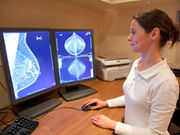Those with diets with highest inflammatory score had increased risk of premenopausal breast cancer
FRIDAY, March 3, 2017 (HealthDay News) — A diet high in sugar, refined carbohydrates, and red and processed meat during adolescence and early adulthood may raise the risk for early-onset breast cancer, according to a study published in the March issue of Cancer Research.
The study tracked data from 45,204 women enrolled in the Nurses’ Health Study II. All of the women completed food frequency questionnaires about their adolescent and early adult diets, and were followed up for 22 years. The researchers assigned the diets an inflammatory score, based on a method that links diet with established inflammatory markers in the blood. During the follow-up period, 870 of the women who finished the high school diet questionnaire were diagnosed with premenopausal breast cancer, and 490 were diagnosed with postmenopausal breast cancer.
Compared to the women with diets with a low inflammatory score, those in the highest of five groups during their adolescent years had a 35 percent higher risk of breast cancer before menopause. Those in the highest inflammatory group during their early adult years had a 41 percent higher risk. The inflammatory score was not linked with overall breast cancer incidence or with breast cancer occurring after menopause.
“Overall, our findings support the notion that an adolescent and early adulthood diet characterized by high intake of sugar-sweetened and diet soft drinks, refined grains, red and processed meat, and margarine, and low intake of green leafy vegetables, cruciferous vegetables, and coffee may increase the incidence of premenopausal breast cancer,” the authors write.
Abstract/Full Text (subscription or payment may be required)
Copyright © 2017 HealthDay. All rights reserved.








